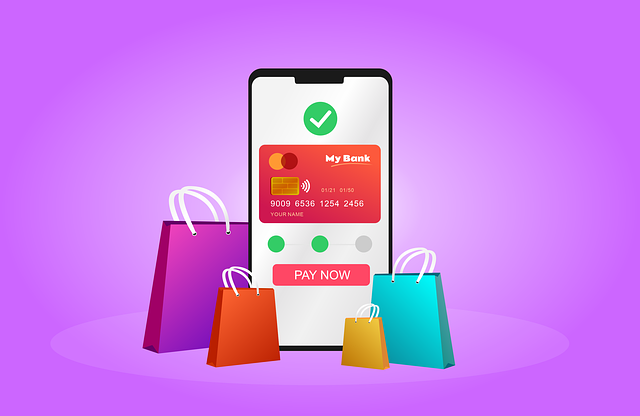For fashion designers and influencer marketers, securing online transactions is vital for building trust, protecting data, and attracting discerning customers. Public Wi-Fi networks pose significant security risks, so small business owners should use VPNs, avoid sensitive activities over public Wi-Fi, update security software, and be cautious of suspicious links or downloads. Protecting digital spaces involves using robust passwords with mixed characters, enabling two-factor authentication (2FA), and employing trusted platforms with strong security features. Following these best practices ensures secure discreet online shopping for fashion designers and influencers while safeguarding privacy, brand protection, and shipping information.
Secure browsing is a critical aspect often overlooked by small business owners, but it’s a vital step to protect sensitive data. In today’s digital landscape, from fashion designers to influencers, online transactions are common. This article guides small business owners through essential security measures. We explore the risks of public Wi-Fi and offer solutions. Additionally, we delve into best practices for discreet online shopping, implementing strong passwords, and two-factor authentication.
- Understanding the Importance of Secure Browsing for Small Businesses
- The Risks of Public Wi-Fi and How to Mitigate Them
- Implementing Strong Passwords and Two-Factor Authentication
- Best Practices for Discreet Online Shopping: A Guide for Fashion Designers and Influencers
Understanding the Importance of Secure Browsing for Small Businesses

For small business owners, especially those in creative industries like fashion design and influencer marketing, secure browsing is more than just a technical consideration – it’s a competitive advantage. In an era where discreet online shopping is crucial for maintaining client privacy and trust, safeguarding customer data from cyber threats opens up new opportunities for growth and customer loyalty. Every transaction, every interaction, is a chance to foster strong, lasting relationships built on security and peace of mind.
Implementing robust security measures not only protects sensitive information like credit card details and personal data but also enhances the overall brand image. Clients, particularly those in fashion and influence, value discretion and are more likely to engage with businesses that prioritize their privacy. By ensuring secure browsing, small business owners can stand out as responsible, forward-thinking leaders in their fields, appealing to a discerning customer base that demands both quality products and robust data protection.
The Risks of Public Wi-Fi and How to Mitigate Them

Using public Wi-Fi networks is a common practice, especially for small business owners who need to stay connected on the go. However, these networks pose significant risks to online security. When using public Wi-Fi, your data becomes vulnerable to interception by malicious actors, who can gain access to sensitive information like login credentials and financial details. This is particularly concerning for fashion designers and influencers engaging in discreet online shopping, as it puts their business operations and personal data at risk.
To mitigate these risks, small business owners should take proactive measures. One effective strategy is to use a Virtual Private Network (VPN) that encrypts internet traffic, ensuring secure browsing. Additionally, avoiding sensitive activities like online banking or confidential communications over public Wi-Fi is essential. Instead, opt for trusted, private networks or consider using mobile data when possible. Regularly updating security software and being cautious of suspicious links or downloads can further enhance the security posture of your business during public Wi-Fi usage.
Implementing Strong Passwords and Two-Factor Authentication

For small business owners, especially those involved in discreet online shopping for fashion designers and influencers, safeguarding their digital spaces is paramount. Implementing strong passwords is a fundamental step. These should be unique, lengthy, and a mix of letters, numbers, and special characters to deter brute-force attacks. Additionally, enabling two-factor authentication (2FA) adds an extra layer of security. 2FA requires users to provide a second form of verification, like a code from their phone, in addition to their password, making it significantly harder for unauthorized individuals to gain access to accounts.
Best Practices for Discreet Online Shopping: A Guide for Fashion Designers and Influencers

When it comes to discreet online shopping, fashion designers and influencers have unique needs. Their work often involves purchasing exclusive or limited-edition items, sourcing rare fabrics, and managing a public image that requires both privacy and brand protection. To ensure secure browsing, these professionals should adopt best practices like using trusted platforms known for their robust security features and encryption protocols. This minimizes the risk of data breaches and protects sensitive information shared during transactions.
Furthermore, utilizing strong, unique passwords for each online account is crucial, along with enabling two-factor authentication where available. Staying updated on software patches and employing antivirus software adds an extra layer of defense against malicious actors who may target personal or professional financial data. Discreet shopping also demands caution when sharing personal details, such as shipping addresses, with third-party sellers. Verifying the legitimacy of sites and reading reviews beforehand can help avoid potential scams or fraudulent activities that compromise both privacy and business interests.
For small business owners, especially fashion designers and influencers, securing their online presence is paramount. By understanding and mitigating risks like public Wi-Fi dangers, implementing robust security measures like strong passwords and two-factor authentication, and adopting best practices for discreet online shopping, these entrepreneurs can protect sensitive data, safeguard their brands, and ensure a safe digital environment. In today’s world, where business often happens online, these steps are crucial to staying competitive and secure.
